Are you looking for a way to process and work through trauma or difficult emotions? Eye movement desensitization and reprocessing (EMDR) therapy is an innovative technique that has been proven to be successful in helping people heal from traumatic experiences, manage anxiety, and reduce stress. This therapeutic approach can be a way for individuals who are struggling with addiction and co-occurring mental health concerns to gain insight and move toward recovery.
If you’re searching for “EMDR therapy near me,” Athens Addiction Recovery Center can help. Our Georgia addiction treatment center provides evidence-based care that can help you move towards lasting, sustainable recovery.
What Is EMDR?
EMDR stands for eye movement desensitization and reprocessing. This type of psychotherapy uses rapid eye movements to help the client reprocess memories and experiences. The process helps desensitize the client from their traumatic memory so that they can move forward in life without being burdened by the memory of that experience. It works by accessing both sides of your brain—the conscious part of your brain which stores facts and information as well as the unconscious part which contains all our emotions and feelings. By activating both these parts of your brain during a session, you can learn how to process or cope with difficult emotions in a more effective way.
Who Is EMDR Right For?
EMDR is a great option for anyone who has experienced trauma or emotional distress such as PTSD, anxiety disorders, depression, grief/loss issues, or any other form of psychological suffering. Some signs that someone is a good candidate for EMDR include:
- Feelings of intense fear or panic when thinking about past events
- Avoidance behaviors such as avoiding places or people that remind them of certain memories
- Feeling stuck in certain patterns or cycles
- Having difficulty expressing one’s emotions due to feeling overwhelmed by them
- Having difficulty sleeping due to recurring nightmares
- Feeling disconnected from others
- Difficulty concentrating on daily tasks
- Numbness or lack of reactivity when trying to recall memories associated with trauma
During the course of treatment, EMDR can be used to address the root causes of addiction and co-occurring mental health conditions.
What to Expect in a Typical EMDR Session
During an EMDR session, the therapist will use bilateral stimulation (BLS), which consists of side-to-side eye movements combined with physical tapping on your body (usually on your hands). The therapist will guide you through this process while encouraging dialogue about any thoughts or images that come up during each round of BLS. This allows you to safely confront any difficult memories while giving you space to express yourself openly. After each round of BLS, the therapist will ask what came up for you so they can help you interpret it before proceeding with another round if necessary. Other forms of bilateral stimulation may also be used, such as auditory tones via headphones (whereby different tones are played into either ear) or light pulses administered through handheld paddles held near either side of your head.
Benefits of Going Through EMDR Therapy
The main benefit clients experience after going through EMDR takes place over time as their ability to cope with difficult emotions increases significantly due to their improved understanding of how they deal with them differently now than they used to before starting treatment sessions.
With practice comes mastery at managing these feelings so that instead of being overwhelmed by them, they become more comfortable discussing them openly without fear or judgment. Additionally, clients report improved self-confidence as well as increased feelings of relief once they start seeing results from their sessions, leading to better overall quality of life.
Discover EMDR at Athens Addiction Recovery Center
Reach out to our team today to learn more about how EMDR therapy can help you heal. Call 844.959.4998 to get started.

